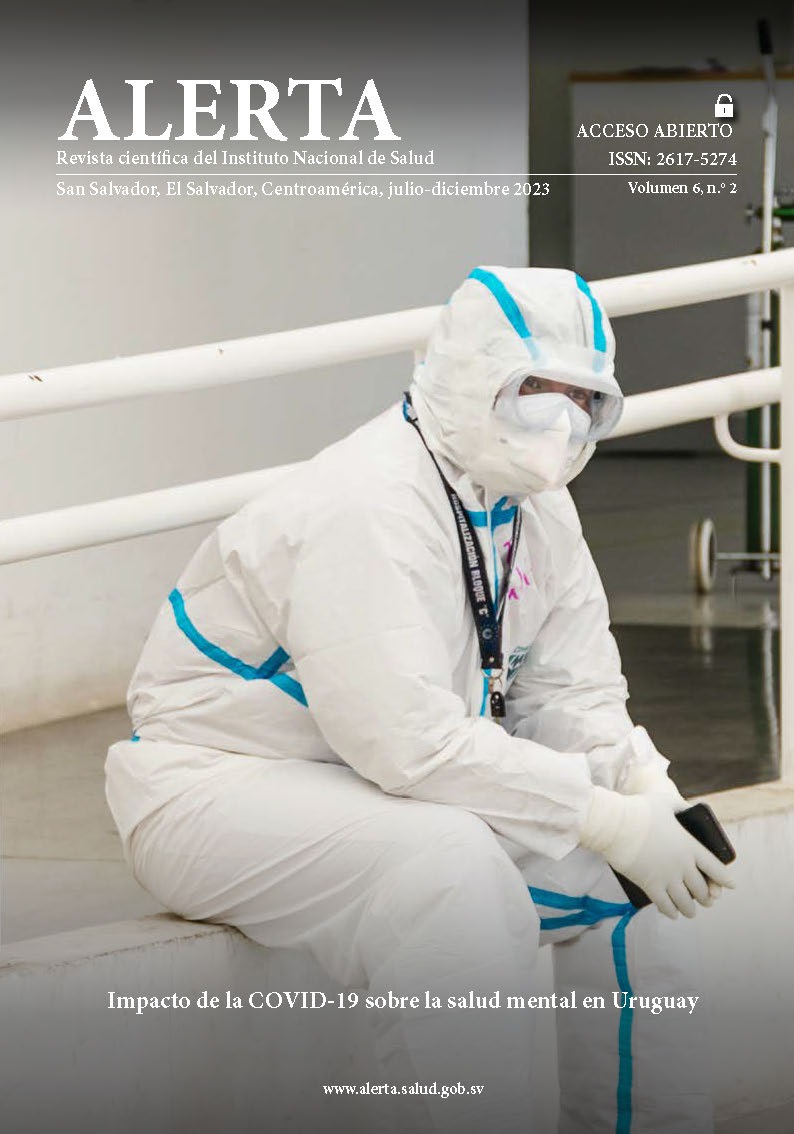Role of neutrophil extracellular traps in the prognosis of respiratory tract infections
DOI:
https://doi.org/10.5377/alerta.v6i2.15448Keywords:
Pneumonia, coronavirus infection, neutriphil extracellular traps, prognosisAbstract
Neutrophil extracellular traps (NET) have recently emerged as a potential link between immunity and inflammation, which could play a key role in the pathogenesis of respiratory tract infections. This review aims to determine the role of neutrophil extracellular traps as prognostic markers in respiratory tract infectious diseases. For this article a literature review was undertaken, consulting available publications through an automated search in PubMed, Scopus, and Embase databases. High concentrations of neutrophil extracellular traps (cfDNA, Myeloperoxidase-DNA complexes) in patients with severe clinical presentation due to respiratory tract infections are related to a longer length of hospital stay, prolonged period of antibiotic administration and increased risk of admission to the ICU, need for mechanical ventilation, organ dysfunction and even death (p ≤ 0.05). Despite not having a standardized measurement parameter, the excess of neutrophil extracellular traps corresponds to the severity of tissue damage observed in patients with respiratory tract infections, revealing the important prognostic role of the neutrophil response and NETosis process in pulmonary infectious diseases.
Downloads
311
PDF(Inglés) 52
Downloads
Published
How to Cite
Issue
Section
License
Copyright (c) 2023 Francisco David Flores Guzmán, Anna Gabriela Hernández Rivera, Karla Gabriela Iraheta Tobar

This work is licensed under a Creative Commons Attribution 4.0 International License.
Privacy statement:
Alerta articles are published under license Creative Commons 4.0 CC BY: https://creativecommons.org/licenses/by/4.0/
Authorship rights
Revista Alerta gives the authors exclusive control of their work and the right to be acknowledged and cited.





